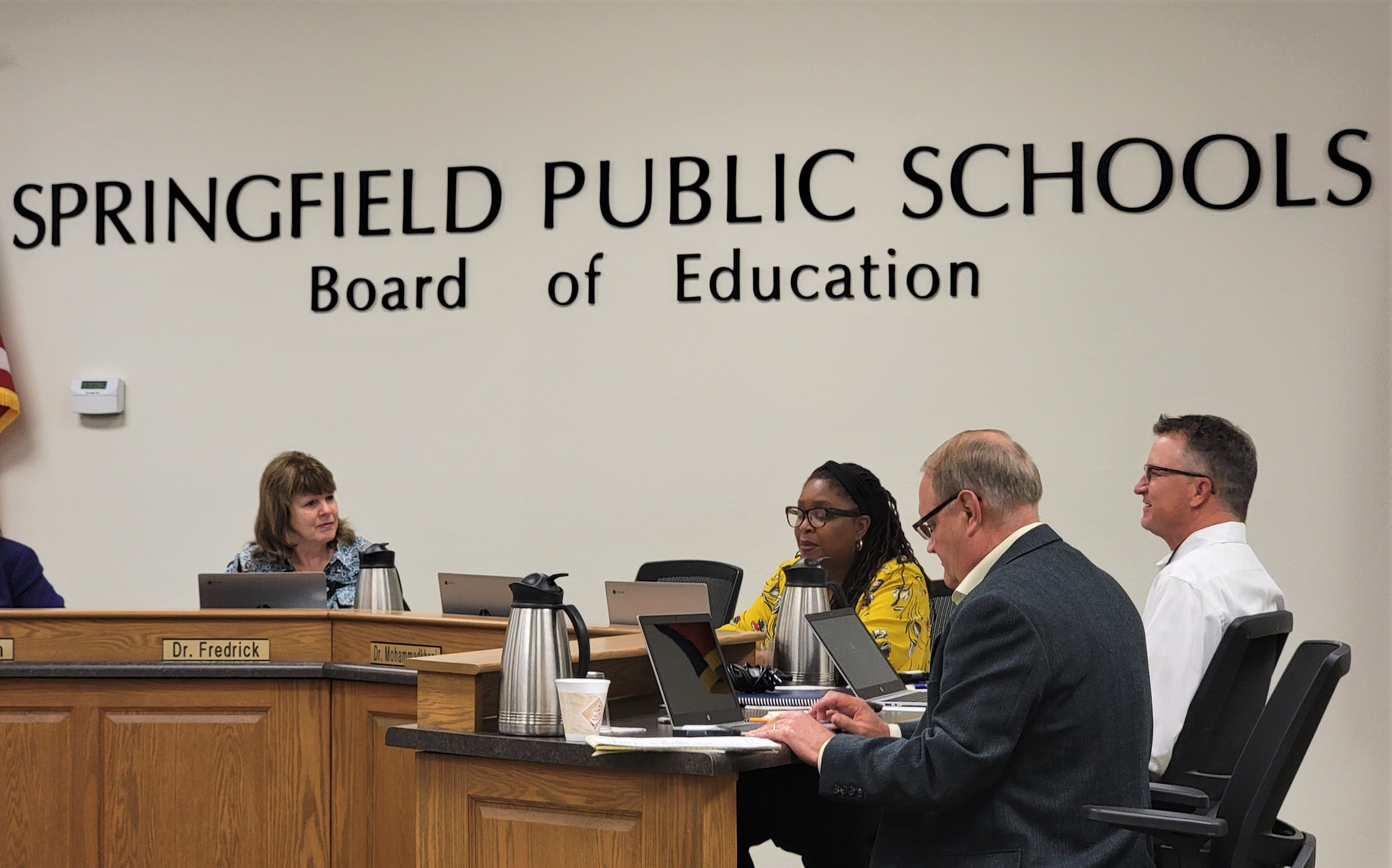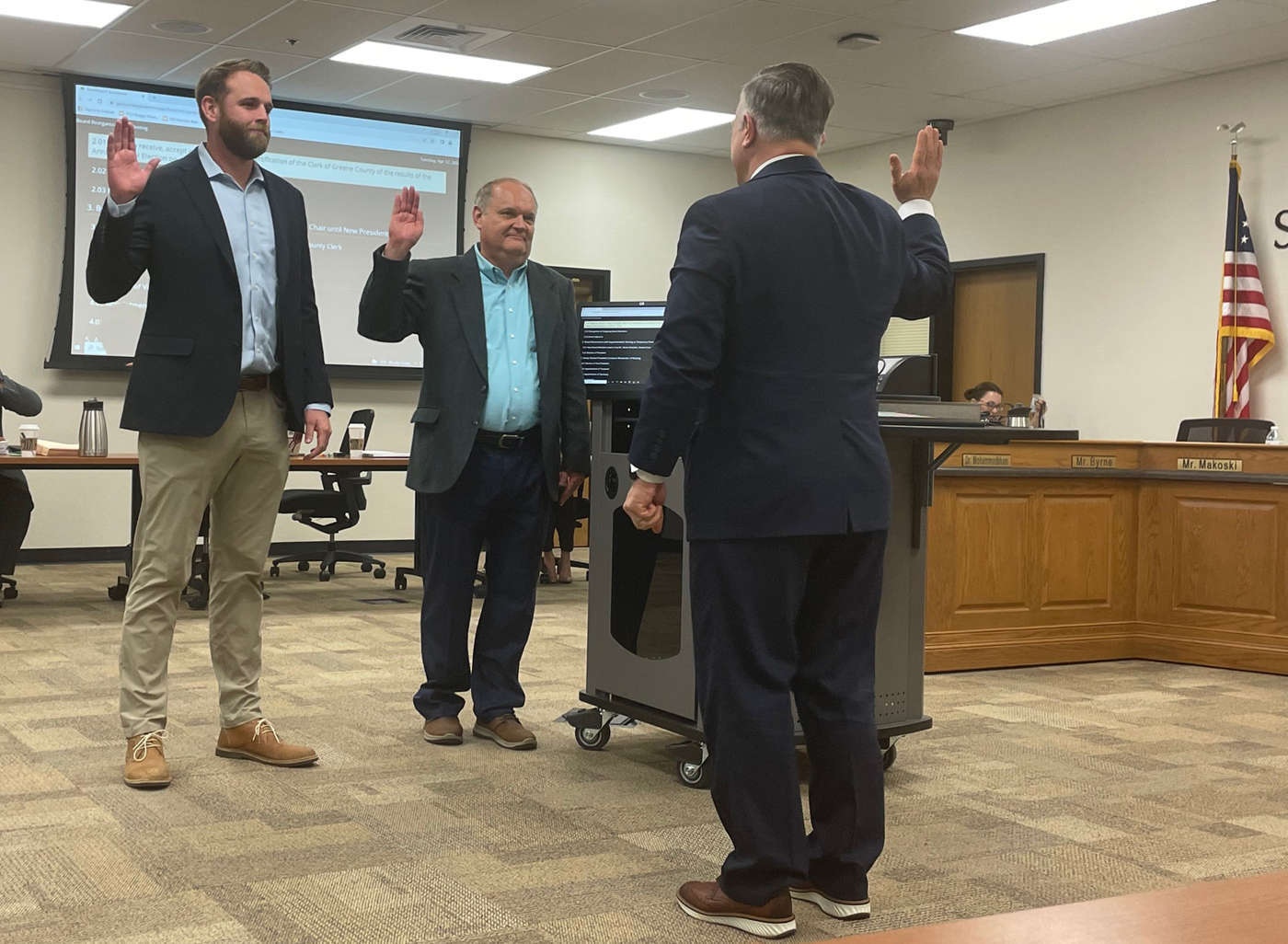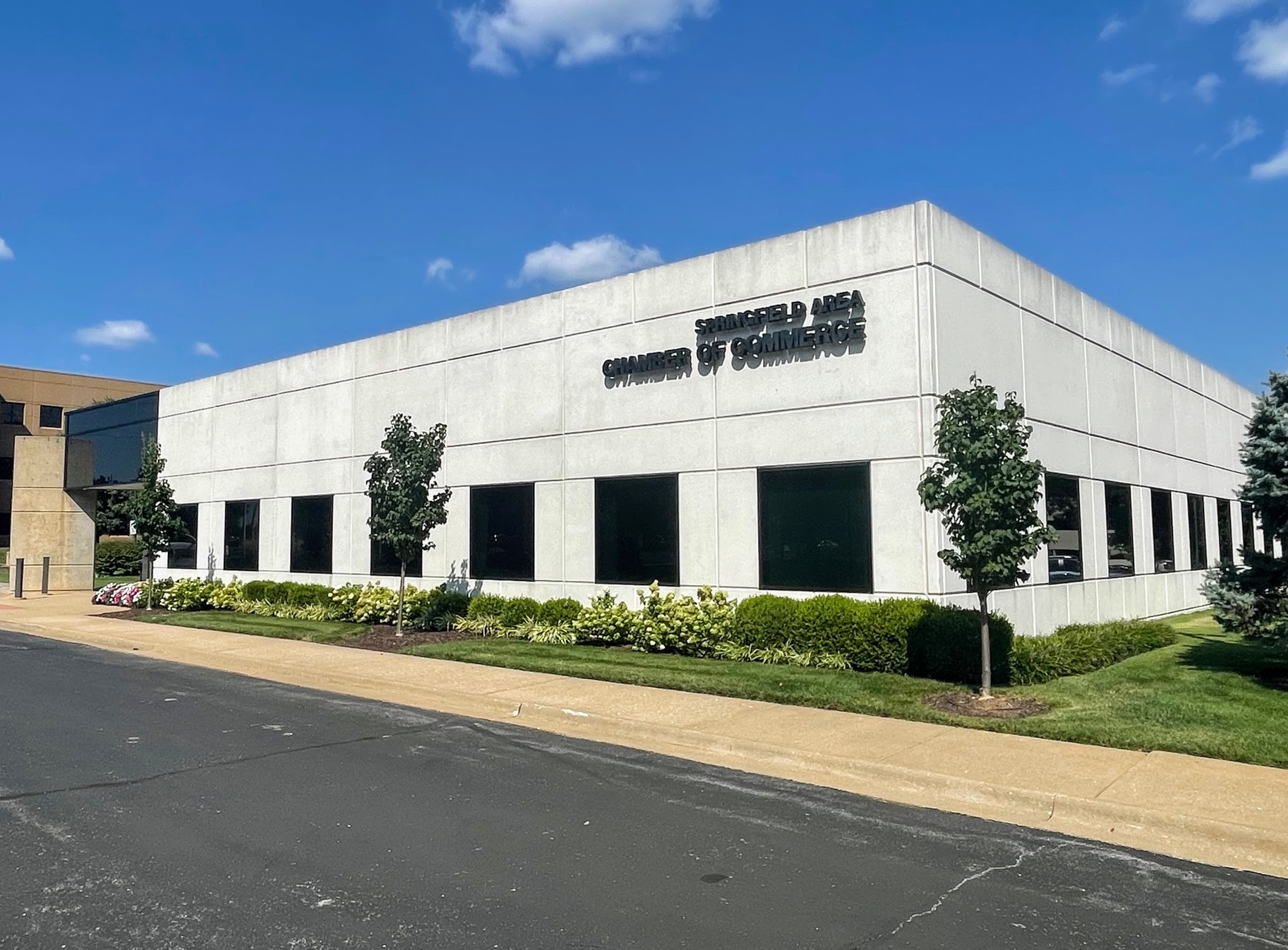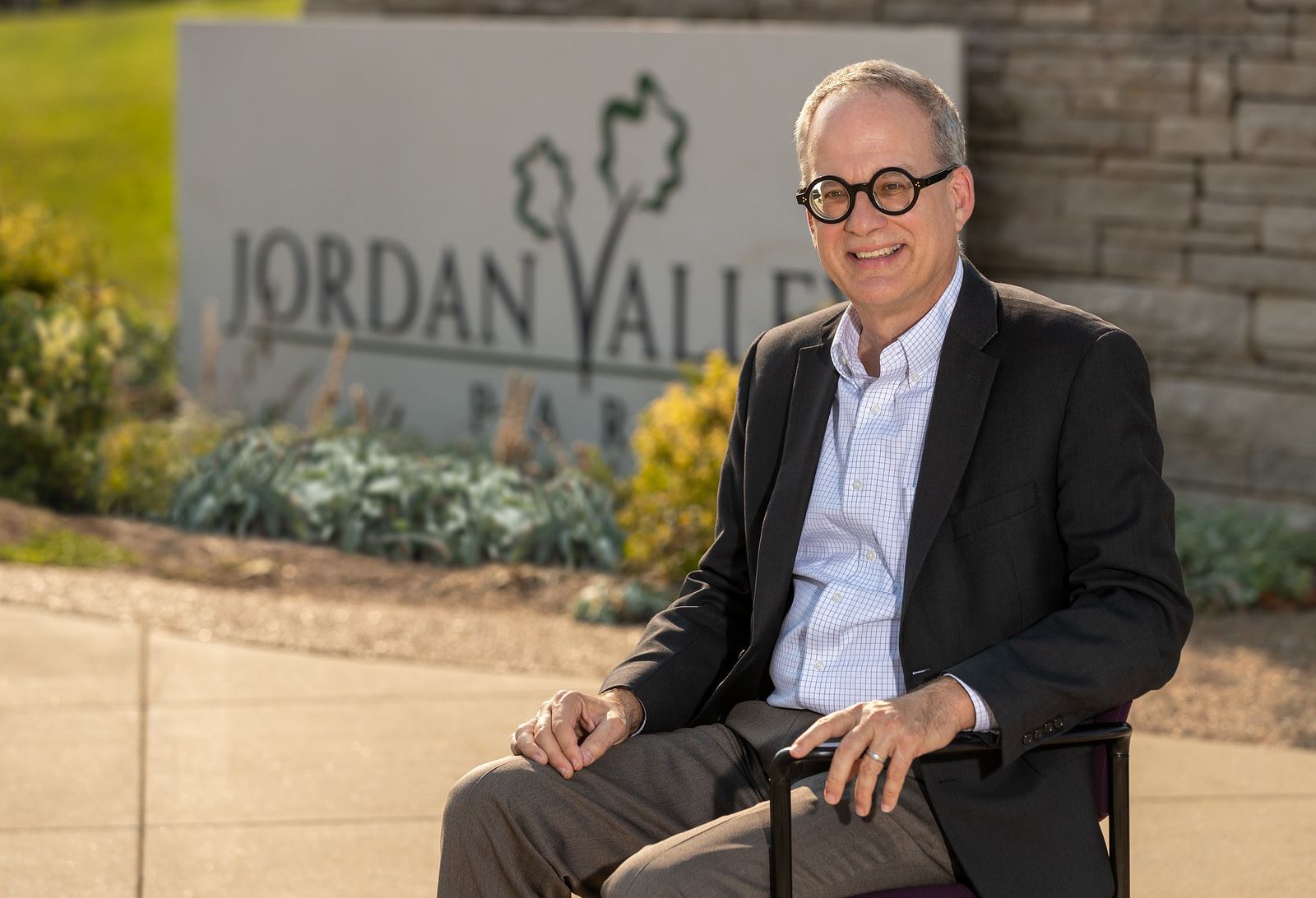Since 1999, the Springfield Area Chamber of Commerce has endorsed candidates for the Springfield Public Schools board of education race. That changes in the next election cycle.
Matt Morrow, chamber president and CEO, said the organization will no longer endorse candidates for the board but will continue to interview them and share their answers with members. The chamber leadership also will continue to participate in recruiting candidates for the office with members of about a dozen other community groups. A note explaining the decision was sent on Monday to chamber members, which number about 1,500.
The decision follows a divisive spring race for two seats on the nonpartisan school board, one in which neither chamber-endorsed candidate won.

One former chamber board chairman who learned about the decision prior to its announcement questioned whether eliminating endorsements was the right path forward. Morrow said the decision was one that’s been discussed in recent years and was made with input from chamber members and the board.
“What we want our members to understand — and the community, too — is that the end goal for us when it comes to the school district and a healthy school system is to have a positive impact,” Morrow said in an interview with the Daily Citizen. “For years, a great way to have a positive impact on that was endorsing candidates, but we're going to shift away from an endorsement model into more of an education and information model.”
In school board election cycles past, the chamber has appointed a committee to develop a set of written questions for each candidate to answer and then conduct in-person interviews. The committee then makes endorsement recommendations to the chamber board of directors. Last spring, that process led to the endorsements of incumbent Charles Taylor and attorney Chad Courtney. Neither won a board seat.
Election results part of — but not all of — discussion to change of chamber practice
Taylor and Courtney earned chamber endorsements because of their “understanding of the relationship between education, the business community and preparing our students for career success — hopefully, someday, in our own community,” chamber board member Brian Hammons said in a news release last February. Out of five candidates on the ballot, Taylor finished third with 8,442 votes, and Courtney finished last with 1,871 votes. Kelly Byrne (10,127 votes) and Steve Makoski (9,556 votes) won the two open seats. Brandi VanAntwerp finished fourth with 8,135 votes.

The year prior, two of the chamber’s three endorsed candidates — Danielle Kincaid and Scott Crise — earned seats on the board. The other chamber-endorsed candidate, incumbent Jill Patterson, came in sixth out of seven candidates as Dr. Maryam Mohammadkhani won the third spot. Morrow said the chamber’s track record on endorsements has been strong, and that he had no reason to believe their endorsement would not lead to “plenty of successful outcomes” if the chamber continued on that path.
“However, I do think that what we have seen more in recent years — and this is not unique to Springfield, and it's not unique to the chamber — is that people are making their decisions in a way that's different than they did a few years ago,” Morrow said. “And they use information differently than they did a few years ago. There may have been a time when there was an inclination of many people to say, ‘We've got a really good and effective committee that represents the broad business community and does the thorough work, and I can trust that and so what they recommend, is what I'll do.' I think that that's just not the way most people make decisions anymore.”
Morrow said the chamber’s board has looked at making this change several times in recent years and said the outcomes of every election factor into the conversation, “but this was a much bigger discussion than that.” He said chamber members, and people across the community, are looking for more than a summary of what the endorsement committee learned.
“I think that's probably why newspapers don't endorse anymore and why a lot of other organizations have moved in a different direction,” he said. “Today, people have a lot of information at their fingertips, and they have that readily available to them anywhere they want to look.”
Chamber continues involvement in Springfield City Council races
The Springfield Area Chamber of Commerce has partnered with the Home Builders Association of Greater Springfield to endorse and recruit candidates for the Springfield City Council via a registered PAC formed in 2010. The Springfield Good Government Committee will continue operating as designed, said Jennifer McClure, spokeswoman for the chamber.
Endorsing candidates started to address ‘a dysfunctional school board’

In the late 1990s, shortly before he became chamber board chairman, current Springfield City Councilmember Richard Ollis helped steer the chamber toward endorsing — and recruiting — school board candidates. Ollis said the move was made in an effort to fix “a dysfunctional school board” at a time when the district was in search of a new superintendent.
“And they (potential superintendent candidates) would read the paper and see the dysfunction of that board, and many of them were opting out of consideration on becoming the Springfield superintendent,” Ollis said. “It kind of reached a point where the business community just felt like that, with some encouragement, maybe we could get some quality people to run for school board. And frankly, I think if you look back, I think we did. I think it worked. We were able to then attract some quality superintendents along the way.”
Ollis said chamber leadership helped encourage community-minded people to run for the office, without promising the chamber would give them a seal of approval. The recruiting arm of the chamber operated separately from the endorsing one, Ollis said.
“Basically, you went out and tried to encourage and recruit somebody to do it, and you said: ‘Hey, look, I can't promise you that the chamber is going to endorse you,’” Ollis said. “‘You have to go through the interview process, which is separate and distinct from the encouragement-recruitment process.' So it was an awkward process.”
But it resulted in good candidates, and good board members, he said.
“I think the real value was getting good people to run for that position and then ultimately, the voters are going to decide,” he said.
Ollis said he had mixed feelings about the decision to end school board endorsements, adding that he respected the chamber’s decision.
Morrow said that while the school endorsement process is ending, the chamber will continue to join with groups like the Junior League of Springfield, Home Builders Association of Greater Springfield and others to recruit community-minded candidates for the office.
Endorsements ebb while campaign cash (and dark money) flows
As Morrow said, many local news organizations have ended or altered their policies regarding candidate endorsements, including in Springfield. The Daily Citizen does not endorse candidates for office. In 2017, the Springfield News-Leader announced the editorial board would endorse far fewer candidates. Kevin Pybas, an associate professor of political science at Missouri State University, said he couldn’t help but guess that the change fits with an ongoing rise in distrust of social institutions.
“The trust individuals have in social institutions and in each other is in worrisome decline,” he said in an email. “I would guess, then, that it means little to voters that a newspaper or group — unless it’s one’s own group — has endorsed a candidate. The average citizen probably says, ‘So what, I’m perfectly capable of making my own decision.’”
Tim Rosenbury, a former school board president and former chairman of the Springfield Area Chamber of Commerce, called for news outlets to buck the non-endorsement trend.
“The unwillingness of the news media to participate at a level that they have in the past, in my opinion, has done harm in local elections,” he said.

He said he felt similarly about the chamber’s decision.
“I'm frankly surprised that they are going this direction,” he said. “I think that the next board election is crucial. All board elections are crucial, but this one especially. This seems to be a period of change for the school board, and what the school board will be in the future and in turn what our school district will be in the future — it is pretty important. And so for the chamber to step out of this is somewhat of a surprise.”
In last spring’s school board race, Byrne and Makoski received funding and endorsements from several conservative groups, including Truth in Politics, a Springfield businessmen-backed group that paid thousands of dollars to air campaign ads asking voters to support the two eventual winners while accusing Taylor of hijacking meetings to “push critical race theories over and over again.” In addition, the two combined to raise about $89,000 in the hotly contested race — almost three-quarters of all funds raised that election cycle.
Transparency key to chamber’s new approach
Morrow said the details still need work, but the chamber’s plan when it comes to school board races will be to provide members with the opportunity to view everything the endorsement committee once did and let them decide for themselves.
“A Chamber of Commerce has a unique role in a community, and that unique role includes being able to hopefully positively affect change in a way that tries to bring people together,” Morrow said. “And in today's political climate, that's a complicated equation. But it still is the unique role of the Chamber of Commerce and particularly this Chamber of Commerce that we have to do everything we can to try to positively affect outcomes while bringing people together and not dividing them.”
While the process of sharing candidate information and interview responses remains in development, the importance of supporting the school district remains a high priority for the chamber, he said.
“We have visited a lot of communities that have varying degrees of success,” Morrow said. “The ones that have had a public school system that failed, those are the communities that have the hardest time figuring out alternative paths to success.
“We have the largest school district in the state of Missouri. We believe there's great strength in that district, and we want to make sure that we do everything we can to positively impact that. It's our future workforce. It's how we are able to attract and retain young professionals and talent and families. There are just a lot of reasons that we need a strong and thriving school district if we want to continue to grow and prosper as a community. It's absolutely fundamental and essential to thriving, growing communities.”
And next April, two seats on the board will be up for grabs.

